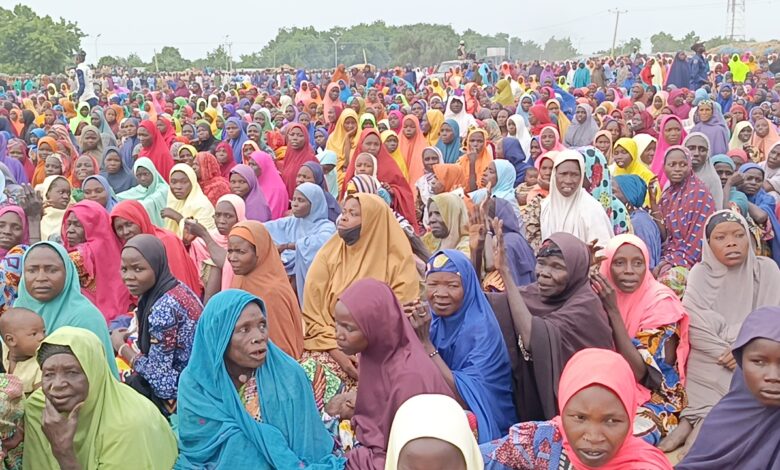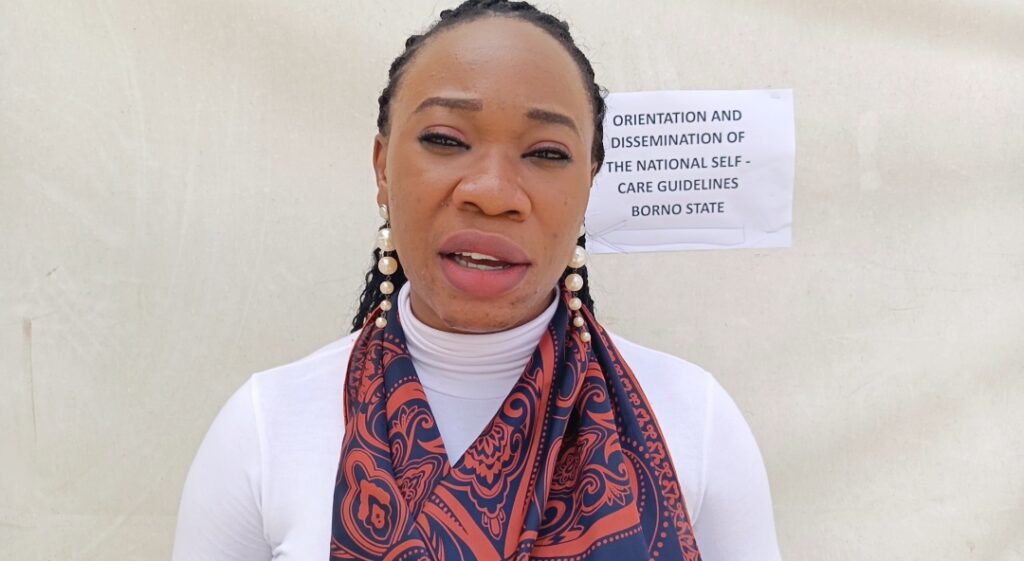Borno Launches Self-Care Guidelines To Boost Health Autonomy Amid Humanitarian Crisis
Borno State has launched its self-care guidelines, joining 23 other states in Nigeria that have already done so. The move is seen as a step in addressing the health needs of vulnerable groups, particularly in sexual and reproductive health.

Stakeholders in the Borno State public health sector have launched the state’s national self-care guidelines, joining 23 other states in Nigeria that have already done so.
The move is seen as a critical step in addressing the health needs of vulnerable groups, particularly in sexual and reproductive health.
Self-care is often confused with self-medication, which is highly condemned. Experts present at the official launch of the guidelines on Tuesday, Sept. 5 clarified that self-care is not about self-medication, but giving individuals some level of autonomy to understand and take the necessary actions for their well-being, especially at the basic level of healthcare, without necessarily requiring the help of a medical professional.
Jennifer Adebambo, Country Program and Advocacy Manager for The White Ribbon Alliance Nigeria spoke to HumAngle about the initiative.
“Today, we are carrying out an orientation and dissemination of national self-care guidelines,” she said. “We have called together stakeholders from the federal ministries of health, the state ministry of health, the state primary healthcare agencies, and some local actors for the orientation and domestication of the self-care guidelines.”
Conceived mainly by the WHO, Self-care is explained as the ability of individuals, families, and communities to promote health, prevent disease, maintain health, and cope with illness and disability with or without the support of a health worker.
According to the leading global health body, there are “currently 3.6 billion people – half of the world – lacking access to essential health services.” This led WHO to recommend self-care interventions for “every country and economic setting, as a critical path to reach universal health coverage, promote health, keep the world safe, and serve the vulnerable.”

Adebambo said the guidelines are particularly crucial in Borno State, which is grappling with a humanitarian crisis.
“The state has a high number of vulnerable men and women with unmet needs for sexual and reproductive health,” she said. “The self-care initiative aims to give these individuals the necessary access to manage their health issues and gain more autonomy over their lives.”
The initiative also marks the inauguration of the Borno State self-care advocacy network, a compendium of healthcare providers, professionals, and implementing partners like the WHO and the UNFP.
The network is expected to support the promotion of self-care implementation in the country, the social accountability of the government, and the Borno state government’s efforts to implement the National self-care guidelines.
However, Adebambo agreed that self-care may not be possible for vulnerable groups if they don’t have access to the needed resources.
“The advocacy network is therefore also tasked with creating a demand generation strategy that will enable women in the accessible, inaccessible, and hard-to-reach areas of Borno state to access self-care.”
The self-care guidelines have existed for a long time, but their implementation in Borno State is only just beginning. As the state continues to navigate its humanitarian crisis, all concerned are hopeful that the guidelines will empower individuals to take control of their health and well-being.
Summary not available.
Support Our Journalism
There are millions of ordinary people affected by conflict in Africa whose stories are missing in the mainstream media. HumAngle is determined to tell those challenging and under-reported stories, hoping that the people impacted by these conflicts will find the safety and security they deserve.
To ensure that we continue to provide public service coverage, we have a small favour to ask you. We want you to be part of our journalistic endeavour by contributing a token to us.
Your donation will further promote a robust, free, and independent media.
Donate HereStay Closer To The Stories That Matter




